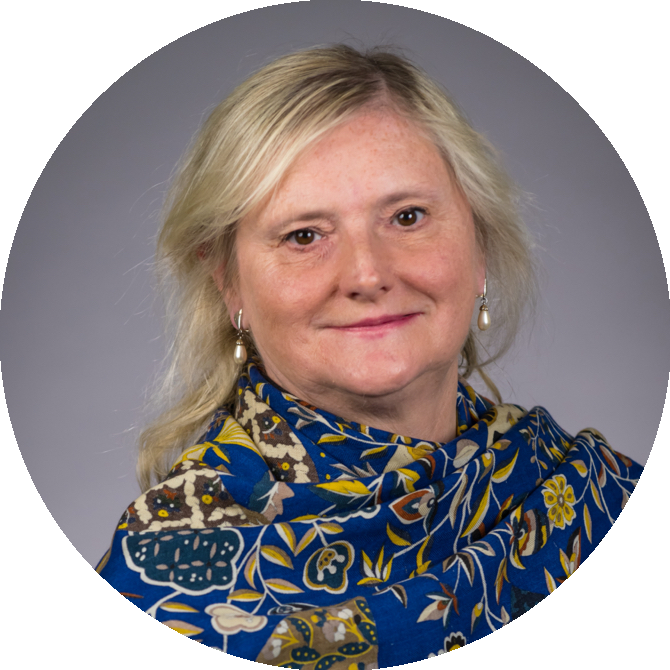Research · Editorial
IET recognised for innovative course production at E-Learning Excellence Awards

In October 2022, academic researchers from The Open University’s Institute of Educational Technology (IET) were recognised by the awarding panel of the European Conference on e-Learning for their innovative practice on the Skills for Prosperity Kenya programme.
The International e-Learning Excellence Awards provides an opportunity for individuals and groups to present and showcase new and innovative ways of using eLearning and blended learning.
IET were shortlisted for the award by a panel of global experts, with Prof Denise Whitelock, Prof Rebecca Ferguson, Dr Simon Cross, Dr Beck Pitt, Dr Fereshte Goshtasbpour and Olivier Biard recognised for the innovative practice that IET has shown in the production and development of the Skills for Prosperity Kenya, Digital Education programme.
Funded by the UK Government Foreign, Commonwealth and Development Office (FCDO), Skills for Prosperity Kenya is a programme which has supported the increased capacity, inclusivity, and effectiveness of Higher Education, and Technical and Vocational Education and Training (TVET) for marginalized and unemployed youth in Kenya.
During the programme, academic leads in IET have worked with a consortium of partners to produce and deliver distance courses, online materials and digital certificates in digital education, supporting educators and Higher Education Institutions (HEIs) to widen access to open and distance learning across Kenya.
OU Supported Open Learning as an innovative pedagogical approach
At the centre of The OU’s learning and teaching is our Supported Open Learning approach, designed to provide learners with a flexible, social, inclusive and supported learning experience.
Building on our rich history in supporting educators to advance their online teaching practice, academics in IET produced and tailored course materials to the educational context in Kenya.
In two previous initiatives, IET and The OU have worked with international partners to improve the quality of distance learning in the global south with open education pedagogy. The experience and success of these initiatives have been applied to the Skills for Prosperity Kenya programme:
- The TIDE (Transformation by Innovation in Distance Education) project developed the capacity of staff at 40 Arts and Sciences Higher Education Institutions (HEIs) across Myanmar.
- Pathways for Learning, hosted on OpenLearn Create, The OU’s free learning platform, provides two free professional development programmes for educators and professional staff across HEIs who share responsibility for providing quality distance and online learning.
Discussing how open education pedagogy is key to the learning and teaching of the Skills for Prosperity Kenya programme, Dr Fereshte Goshtasbpour, Lecturer in Online Teaching at The OU’s Institute of Educational Technology, said:
“In IET our core mission is to be open, even about the strategies we have. Through the International e-Learning Excellence Awards, we have made our practices publicly available. I think this is what inspires us, as it is part of our mission to share what we do well and share what we do with others.”
“This was a nationwide university programme, which adds to the complexity and scale of course development compared to a localised context.”
In responding to the call for nominations for the e-Learning Excellence Awards, Dr Fereshte Goshtasbpour and academic colleagues submitted a case history detailing the innovative approach that IET took to producing the inclusive and accessible digital education resources, which are central to the Skills for Prosperity Kenya project. Dr Goshtasbpour added:
“The Five Rs of Open Educational Resources [OER], retain, reuse, revise, remix, and redistribute were a big part of the testimony that we submitted, demonstrating the innovative way we approached developing and delivering the Skills for Prosperity Kenya Digital Education”.
“This is based on IET experience. Following from TIDE in Myanmar and Dr Tim Coughlan’s Pathways for Learning initiative, IET has developed an innovative approach that can be contextualised with tailored material for varied audiences.”
“In Kenya, access to resources for digital education such as devices or internet is a challenge. Aiding how learners can access information, even offline, shows the innovative approaches we have taken to the remix, reuse and redesign learning.”
Reflection and next steps for the OER
The awarding panel who shortlisted IET academics for the International e-Learning Excellence Awards, ranked IET’s submission as ‘excellent’ in the categories of being ‘transferable to other settings’, ‘how well the initiative was received by its participants’ and ‘how well the learning outcomes have been evaluated’.
Discussing the recognition from the awarding panel, Fereshte Goshtasbpour said:
“Innovation is at the core of this award, as it is as the core of IET’.
“I value that we passed the process of peer review successfully and reviewers from different countries, contexts, and areas of expertise recognised our innovative approach. This is the most valuable aspect of what we have achieved.”
Adding further:
“We have quantitative and qualitative data from participants and surveys pre- and post-training, showing that learners reported improved confidence and capabilities in digital competencies.”
“We also produced vignettes of learners, and impact videos, which demonstrated how our training affected their practice, planning and policy at their institutions.”
The following vignettesshow feedback from participants of the Skills for Prosperity Kenya programme, who have taken part in the online capacity development training led by IET, reporting self-reported scores for different digital skills (before and after the training), reflections on the impact of training and considerations on future plans to implement what they have learned.
The following impact videos were produced with course participants, who commented on the impact of the programme on their pedagogy as well as HEI’s policies and practices.
Following completion of the Skills for Prosperity Kenya project, the digital resources will be made freely available by the Government of Kenya for other institutions to replicate in their context.
In closing, Dr Fereshte Goshtasbpour commented on future steps for the project:
“This will allow for educators and HEIs globally to follow the steps we made and implement the professional practice in their context.”
People
-
OB
Olivier Biard



